- Home
- Robin Cook
Vector Page 3
Vector Read online
Page 3
“We’ll just have to ask her,” Lou said. “She said she’d be a little late arriving this morning.”
“Knowing Laurie she’ll make us wait until tonight,” Jack said. “Did she say how late she’d be?”
“No,” Lou said.
“Even that’s weird,” Jack said. “If she was up and at ‘em at four-thirty, how come she’s late?”
Lou shrugged.
Jack went back into the ID room with his mind spinning about Laurie and terrorism. It was a strange combination. Realizing there was little he could do about either for the moment, he got Vinnie away from his paper for the second time and vowed to get his day under way. He looked forward to concentrating on a problem with an immediate resolution.
As Jack and Vinnie passed Janice Jaeger’s office, Jack leaned inside.
“Hey, you did a good job on this Papparis case,” Jack said.
Janice looked up from her desk. Her dark circles were as impressive as always. Jack couldn’t help but wonder if the woman slept at all.
“Thanks,” Janice said.
“You’d better get some rest,” Jack said.
“I’ll be leaving as soon as I wrap up this case.”
“Anything extra we should know concerning Papparis?” Jack asked.
“I think it’s all there,” Janice said. “Except for the fact that the doctor I talked with was pretty upset. He told me he’d never seen a more aggressive infection. In fact, he’d like a call after you do the autopsy. His name and number are on the back of the information sheet.”
“I’ll call him as soon as we have something,” Jack promised.
Once in the elevator Vinnie spoke up. “This case is starting to give me the creeps. It’s reminding me of that plague case we had a few years ago. I hope this is not the start of some kind of epidemic.”
“You and me both,” Jack said. “It reminds me more of the influenza cases we saw after the plague. Let’s be extra careful about contamination.”
“That goes without saying,” Vinnie said. “I’d put on two moon suits if it were possible.”
Vinnie was already in his scrubs, so while Jack went into the locker room to get out of his street clothes, Vinnie went to don his moon suit. Then while Vinnie went into the autopsy room, or pit as it was called, Jack went through all the material in the folder, particularly Janice Jaeger’s forensic investigator’s report. On this more thorough reading Jack noticed something that he’d missed the first time through. The deceased had been in the rug business. Jack wondered what kind of rugs and where they were from. He made a mental note to bring the question up with the forensic investigators.
Next Jack snapped Papparis’s morgue X-ray onto a view box. As a total-body film the X-ray was not much good diagnostically. In particular, the chest detail was indistinct. Regardless, two things caught Jack’s attention. First, there was little evidence of pneumonia, which seemed surprising in view of the history of the patient’s rapid respiratory deterioration; and second, the central part of the chest between the lungs, known anatomically as the mediastinum, seemed wider than usual.
By the time Jack got himself suited up in his biocontainment moon suit, with its hood, plastic face mask, and battery-powered HEPA filtered ventilation system, Vinnie had the body on the autopsy table and all the appropriate specimen jars lined up.
“What the hell have you been doing out there?” Vinnie complained when Jack appeared. “We could have been done by now.”
Jack laughed.
“And look at this guy,” Vinnie added, nodding to the corpse. “I don’t think he’s going to get to go to the prom.”
“Good memory,” Jack said. Jack had used that line when they’d started the plague case Vinnie had referred to earlier and it had become a staple of their black humor.
“And that’s not all I remembered,” Vinnie said. “While you were out there dicking around I looked for arthropod bites. There aren’t any.”
“Such recall!” Jack commented. “I’m impressed.” During the plague case Jack had told Vinnie that arthropods, particularly insects and arachnids, played an important role as a vector in the spread of many infectious diseases. Searching for evidence of their involvement was an important part of the autopsy on such cases. “Soon you’ll be taking over my job.”
“What I’d like to do is take over your salary,” Vinnie said. “The job you can have.”
Jack did his own external exam. Vinnie was right: there were no signs of bites. There was also no purpura, or bleeding into the skin, although the skin did seem to have a slightly dusky tint.
The internal exam was another story. As soon as Jack removed the front wall of the chest the pathology was apparent. There was frank blood on the surface of the lungs, a finding called hemorrhagic pleural effusion. There was also a lot of bleeding and signs of inflammation in the structures located between the lungs, which included the esophagus, the trachea, the main bronchi, the great vessels, and a conglomeration of lymph nodes. This finding was called hemorrhagic mediastinitis, and it explained the wide shadow Jack had seen earlier on the X-ray.
“Whoa!” Jack commented. “With all this bleeding I don’t think this could be the flu. Whatever it was, it was spreading like wildfire.”
Vinnie nervously glanced up at Jack. He had difficulty seeing Jack’s face because of the reflection from the overhead fluorescent lights glinting off Jack’s plastic face screen. Vinnie didn’t like the sound of Jack’s voice. Jack was rarely impressed by what he saw in the autopsy room, but he seemed to be now.
“What do you think it is?” Vinnie asked.
“I don’t know,” Jack admitted. “But the combination of hemorrhagic mediastinitis and pleural effusion rings a bell in the back of my mind. I’ve read about it someplace; I just can’t remember where. Whatever this bug is, it’s got to be something mighty aggressive.”
Vinnie instinctively took a step back from the body.
“Now don’t go freaking out on me,” Jack said. “Get back over here and help me get out the abdominal organs.”
“Yeah, well, promise me you’ll be careful,” Vinnie said. “Sometimes you work too fast with the knife.” He reluctantly stepped back to the table.
“I’m always careful,” Jack said.
“Sure!” Vinnie said sarcastically. “That’s why you ride that bike of yours around the city.”
As the two men concentrated on the case, other bodies began arriving. They were placed on their respective tables by the mortuary techs to await their autopsies. Eventually, the other medical examiners began to drift in. It was promising to be a busy day in the pit.
“Whatcha got?” a voice asked over Jack’s shoulder.
Jack straightened up and turned to look at Dr. Chet McGovern, his officemate. Jack and Chet had joined the Office of the Chief Medical Examiner within a month of each other. They got along superbly, mainly because they shared a true love and appreciation for their work. Both had tried other areas of medicine before switching to forensic pathology. Personality-wise they were quite different. Chet wasn’t nearly as sarcastic as Jack, and he didn’t share Jack’s problem with authority.
Jack gave Chet a thumbnail sketch of the Papparis case and showed him the pathology in the chest. He even showed him the cut surface of the lung, which revealed minimal pneumonia.
“Interesting,” Chet said. “The infection must have been airborne.”
“No doubt,” Jack said. “But why so little pneumonia?”
“Beats me,” Chet said. “You’re the infectious-disease expert.”
“I wish that were true,” Jack said. He carefully slipped the lung back into the pan. “I’m positive I’ve heard of this combination of findings. For the life of me I can’t remember what it was.”
“I’ll wager you’ll figure it out,” Chet said. He started to move off, but Jack called after him, asking if he’d run into Laurie.
Chet shook his head. “Not yet.”
Jack looked up at the wall clock. It was go
ing on nine. She should have been there an hour ago. He shrugged and went back to work.
The next order of business was to remove the brain. Since Jack and Vinnie worked together so frequently, they had established a routine of cutting into the head that didn’t require conversation. Although Vinnie did a significant amount of the work, it was always Jack who lifted off the skullcap.
“My, my,” Jack commented as the brain came into view. As with the lungs, there was a significant amount of blood on its surface. When this was seen in an infectious case, it usually meant hemorrhagic meningitis, or inflammation of the meninges to the point of causing bleeding.
“This guy must have had one wicked headache,” Vinnie said.
“That and crushing chest pain,” Jack said. “The poor fellow probably felt like he’d gotten run over by a train.”
“What do you have there, Doctor?” a deep, resonant voice asked. “A burst aneurysm or a trauma victim?”
“Neither,” Jack said. “It’s an infectious case.” He turned and looked up at the imposing six-foot-seven silhouette of Dr. Calvin Washington, the deputy chief.
“How appropriate,” Calvin said. “Contagion is right up your alley. Have you got a tentative diagnosis?”
Calvin leaned over the table to get a better look. His massive muscled bulk made Jack’s stocky frame look tiny by comparison. As an athletically talented African-American giant, Calvin could have played professional football if he hadn’t been so eager to get to medical school. His father had been a respected surgeon in Philadelphia and he was determined to follow a similar career pattern.
“I hadn’t a clue until two seconds ago,” Jack said. “But as soon as I saw the blood on the surface of the brain it hit me. I remembered reading about inhalational anthrax a couple of years ago when I was boning up about infectious disease.”
“Anthrax?” Calvin gave a disbelieving chuckle. Jack had a penchant for coming up with outlandish diagnoses. Although he often turned out to be correct, anthrax seemed beyond the realm of possibility. In all Calvin’s years as a pathologist he had seen only one case, and that had been in a cattleman in Oklahoma, and it wasn’t inhalational. It had been the more common cutaneous form.
“At this point anthrax would be my guess,” Jack said. “It will be interesting if the lab confirms it. Of course it might turn out that this patient had a compromised immune system that no one knew about. Then the bug could turn out to be a garden-variety pathogen.”
“From sad experience I know better than to make a bet with you, but you’ve picked a mighty rare disease, at least here in the U.S.”
“Well, I don’t remember how rare it is,” Jack said. “All I remember is that it’s associated with hemorrhagic mediastinitis and meningitis.”
“What about meningococcus?” Calvin asked. “Why not pick something a lot more common?”
“Meningococcus is possible,” Jack said. “But it wouldn’t be high on my list, not with the hemorrhagic mediastinitis. Besides, there was no purpura, and I’d expect more purulence on the brain surface with meningococcus.”
“Well, if it turns out to be anthrax, let me know sooner rather than later,” Calvin said. “I’m sure the Commissioner of Health would be interested. As for your next case, you’ve been informed that I want you to do it.”
“Yes,” Jack said. “But why me? You and the chief are always complaining about my lack of diplomacy. A police custody case usually stirs up a beehive of political turmoil. You sure you want me involved?”
“Your services were specifically requested by people outside the department,” Calvin said. “Apparently your lack of diplomacy has been taken for a positive trait by the African-American community. You might be a headache to the chief and me, but you’ve managed to develop a reputation of professional integrity with certain community leaders.”
“Probably from my exploits on the neighborhood basketball court,” Jack said. “I rarely cheat.”
“Why do you always have to denigrate a compliment?” Calvin questioned irritably.
“Maybe because they make me feel uncomfortable,” Jack said. “I prefer criticism.”
“Lord give me patience,” Calvin commented. “Listen, by having you do the post we might be able to avoid any potential contention that this office is involved in any sort of cover-up.”
“The victim is an African-American?” Jack asked.
“Obviously,” Calvin said. “And the officer is white. Get the picture?”
“I get it,” Jack said.
“Good,” Calvin said. “Give a yell when you’re ready to start. I’ll lend a hand. In fact, we’ll do it together.”
Calvin left. Jack looked at Vinnie and groaned. “That post will take three hours! Calvin might be thorough, but he’s slower than molasses.”
“How communicable is anthrax?” Vinnie asked.
“Relax!” Jack said. “You’re not going to come down with anything. As I recall, anthrax doesn’t spread person to person.”
“I never know when to believe you or not,” Vinnie said.
“Sometimes I don’t believe myself,” Jack said self-mockingly. “But in this instance you can trust me.”
With no more conversation Jack and Vinnie finished the Papparis case. As Jack was getting the lab specimens together to take upstairs, Laurie came into the pit. Jack recognized her by her characteristic laugh; her face was hidden by her bio-protective hood. She was apparently in a buoyant mood. She was accompanied by two others who Jack guessed were Lou and the FBI agent. All were dressed in moon suits.
As soon as he could, Jack stepped over to the table where the newcomers had grouped. By that time there was no more laughter.
“You’re telling me this boy was crucified?” Laurie asked. She was holding up the corpse’s right hand. Jack could see a large sixteen-penny spike protruding from the palm.
“That’s what I’m telling you,” Lou said. “And that was just the start. They’d nailed a cross to a telephone pole and then nailed the kid to it.”
“Good grief,” Laurie said.
“Then they tried to skin him,” Lou said. “At least the front of him.”
“How awful,” Laurie said.
“Do you think he was alive when they were doing that?” Gordon asked.
“I’m afraid so,” Laurie said. “You can see by the amount of bleeding involved. There’s no doubt he was alive.”
Jack stepped closer with the intention of getting Laurie’s attention for a quick chat, but then he caught sight of the body. As jaded as he thought he’d become to the image of death, Brad Cassidy’s corpse made Jack catch his breath. The young man had been crucified, partially skinned, his eyes gouged, and his genitals cut off. There were multiple superficial stab wounds all over his body. The skin of the thorax that had been removed was draped over his legs. On it was a large tattoo of a Viking. A small Nazi swastika was tattooed in the center of his forehead.
“Why a Viking?” Jack asked.
“Hello, Jack, dear,” Laurie said brightly. “Have you finished your first case already? Have you met Agent Gordon Tyrrell? How was your ride in this morning?”
“Just fine,” Jack said. Since the questions had come so quickly he only responded to the last.
“Jack insists on riding a bike around the city,” Laurie explained. “He says it clears his mind.”
“I wouldn’t think that would be particularly safe,” Gordon said.
“It’s not,” Lou agreed. “Yet with the crosstown traffic, there are times I wish I had a bike myself.”
“Oh, come on, Lou!” Laurie exclaimed. “You can’t be serious.”
Jack experienced a distinct feeling of unreality as the conversation continued. It seemed absurd to be engaging in social banter dressed up in biocontainment moon suits in front of a mutilated corpse. Jack interrupted the discussion about bicycling by returning to his initial question about the Viking tattoo.
“It’s from the Aryan myth,” Gordon explained. “Like the style of th
e clothing and the boots, the Viking image is borrowed from the skinhead movement in England, where the whole thing started.”
“But why specifically a Viking?” Jack repeated. “I thought they were into all the Nazi emblems.”
“Their interest in the Vikings comes from a very revisionist view of history,” Gordon said. “The skinheads think the marauding, murderous Vikings epitomized self-reliant masculine honor.”
“That’s why Gordon thinks he got skinned,” Lou said. “Whoever killed him didn’t think he deserved to die with an image of a Viking still attached.”
“I thought this kind of torture went out with the Middle Ages,” Jack said.
“I’ve seen a number of cases just as bad,” Gordon said. “These are violent kids.”
“And scary,” Lou said. “They’re true psychopaths.”
“Pardon me, Laurie,” Jack said. “Could I have a quick word with you? Alone.”
“Of course,” Laurie said. She excused herself from the others and stepped to the side of the room with Jack.
“Did you just get here?” Jack asked in a whisper.
“A few minutes ago,” Laurie admitted. “What’s up?”
“You’re asking me what’s up?” Jack questioned. “You’re the one acting weird, and I’ll tell you, the mystery is driving me crazy. What’s going on? What is it that you want to talk to me and Lou about?”
Jack could see Laurie’s smile despite her face mask.
“My goodness,” she commented. “I don’t think I’ve ever seen you this interested. I’m flattered.”
“Come on, Laurie! Quit stalling. Out with it!”
“It would take too long,” Laurie said.
“Just give me a quick synopsis,” Jack said. “We can save the gory details for later.”
“No! Jack,” Laurie said forcibly. “You’ll just have to wait until tonight, provided I’m still on my feet.”
“What’s that supposed to mean?”
“Jack! I can’t talk now. I’ll talk to you tonight like we decided.”
“You decided,” Jack said.
“I have to get to work,” Laurie said. She turned away and went back to her table.

 Shock
Shock Mutation
Mutation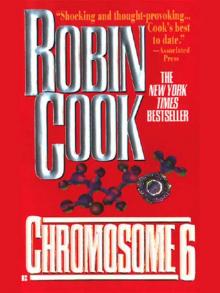 Chromosome 6
Chromosome 6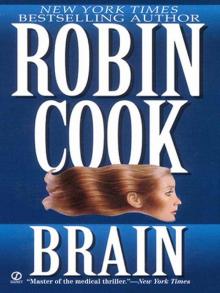 Brain
Brain Intervention
Intervention Invasion
Invasion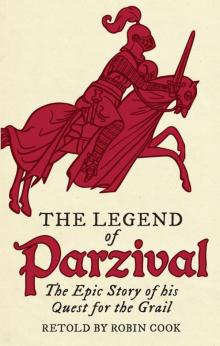 The Legend of Parzival: The Epic Story of His Quest for the Grail
The Legend of Parzival: The Epic Story of His Quest for the Grail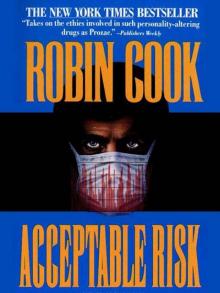 Acceptable Risk
Acceptable Risk Cell
Cell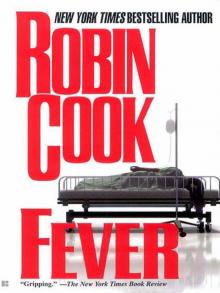 Fever
Fever Death Benefit
Death Benefit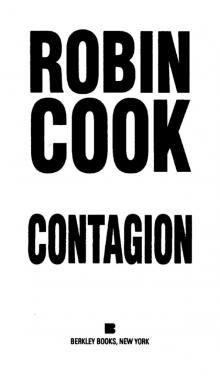 Contagion
Contagion Mindbend
Mindbend Coma
Coma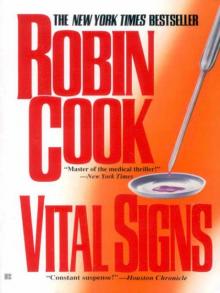 Vital Signs
Vital Signs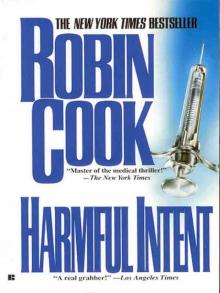 Harmful Intent
Harmful Intent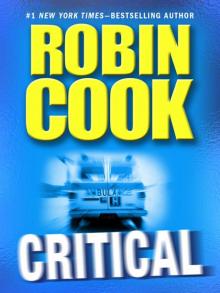 Critical
Critical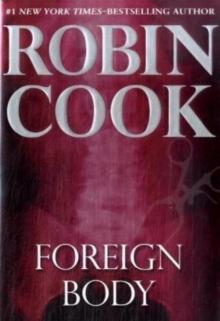 Foreign Body
Foreign Body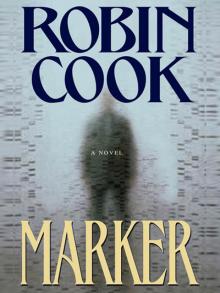 Marker
Marker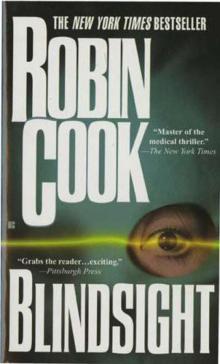 Blindsight
Blindsight Terminal
Terminal Sphinx
Sphinx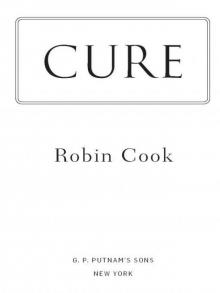 Fatal Cure
Fatal Cure Host
Host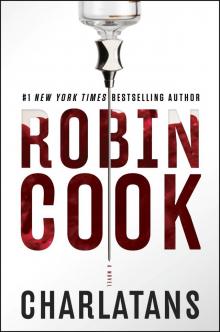 Charlatans
Charlatans Crisis
Crisis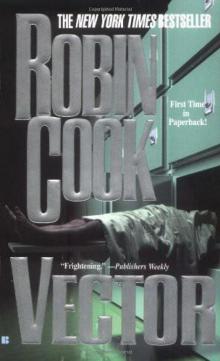 Vector
Vector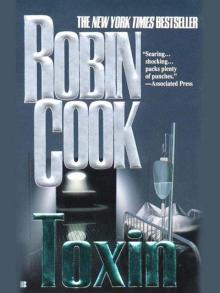 Toxin
Toxin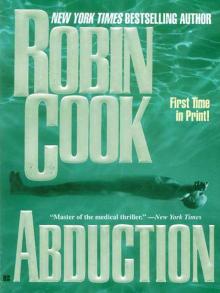 Abduction
Abduction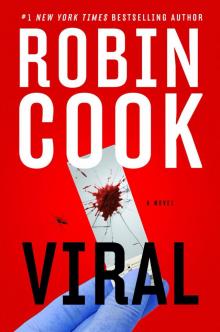 Viral
Viral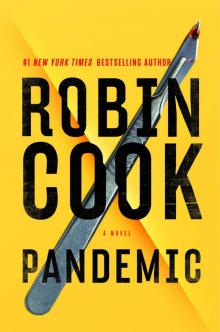 Pandemic
Pandemic Outbreak
Outbreak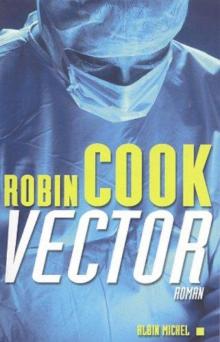 Vector js&lm-4
Vector js&lm-4 Godplayer
Godplayer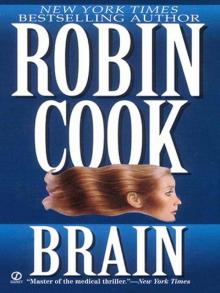 A Brain
A Brain Year of the Intern
Year of the Intern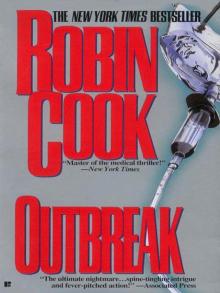 Outbreak dmb-1
Outbreak dmb-1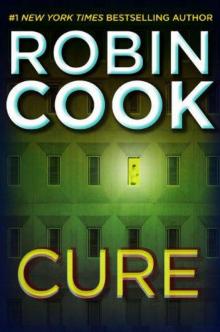 Cure
Cure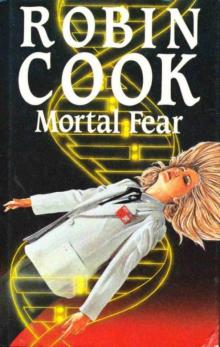 Mortal Fear
Mortal Fear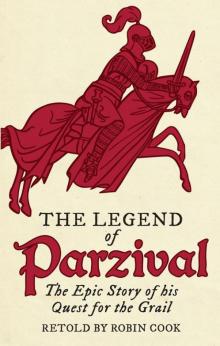 The Legend of Parzival
The Legend of Parzival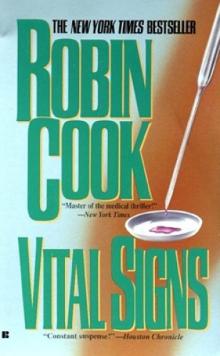 Vital Signs dmb-2
Vital Signs dmb-2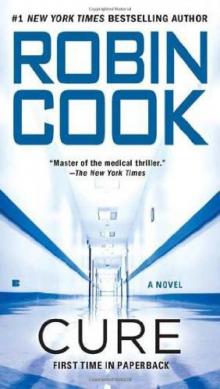 Cure (2010) sam-10
Cure (2010) sam-10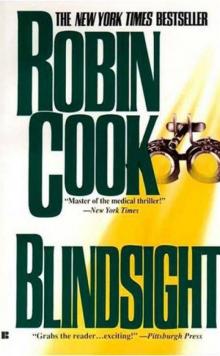 Blindsight sam-1
Blindsight sam-1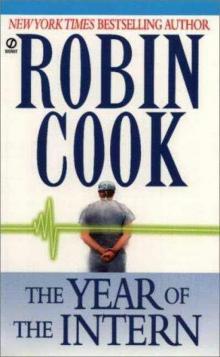 The Year of the Intern
The Year of the Intern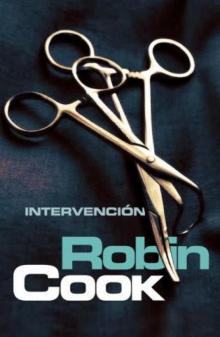 Intervention sam-9
Intervention sam-9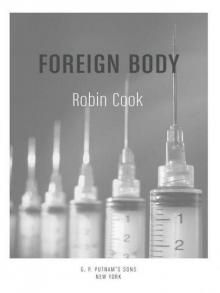 Foreign Body sam-8
Foreign Body sam-8